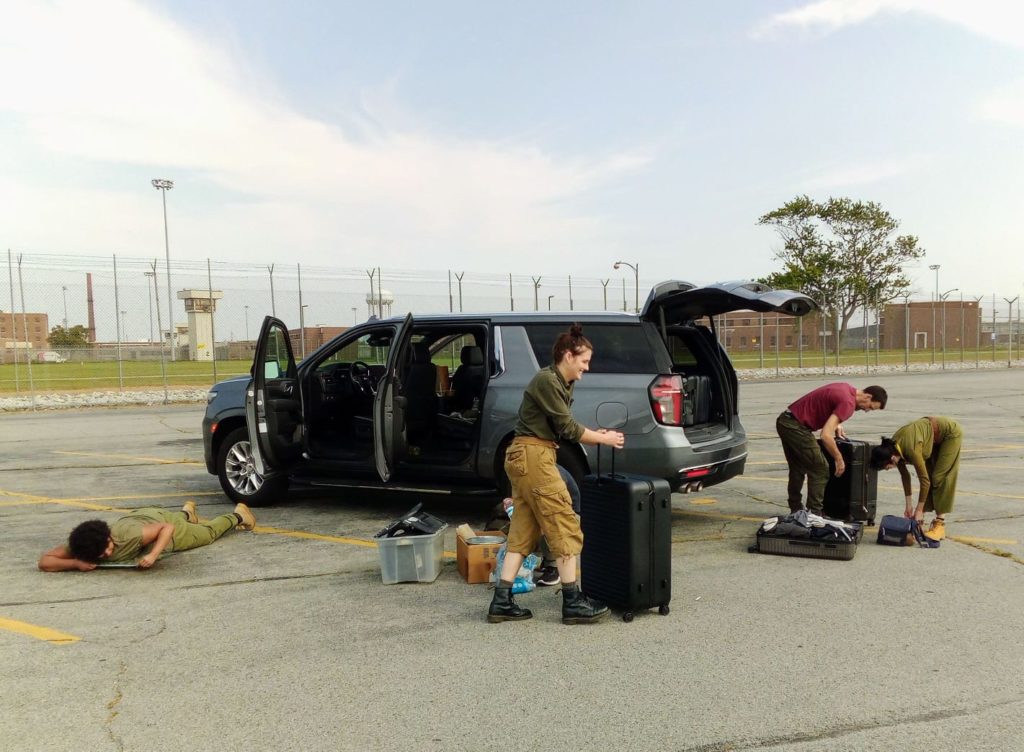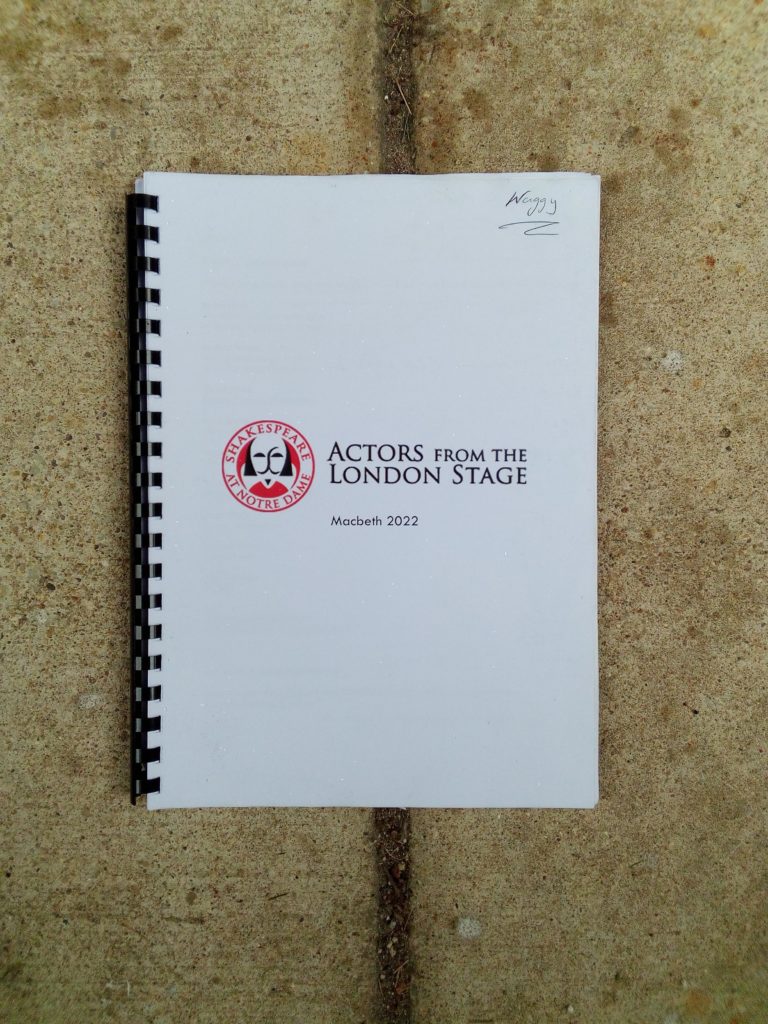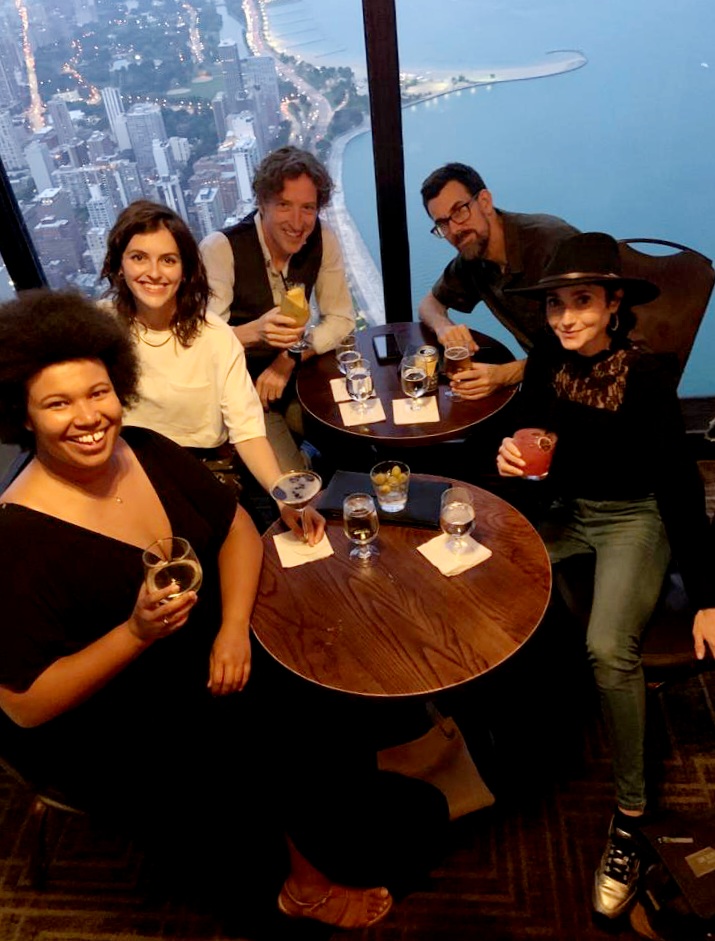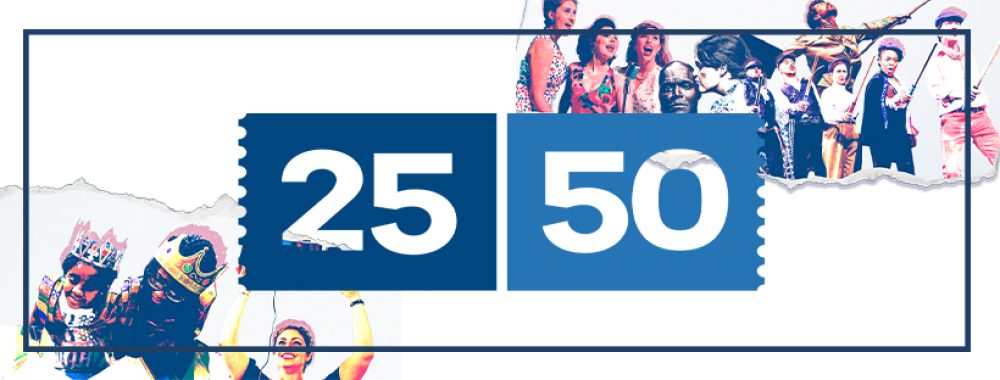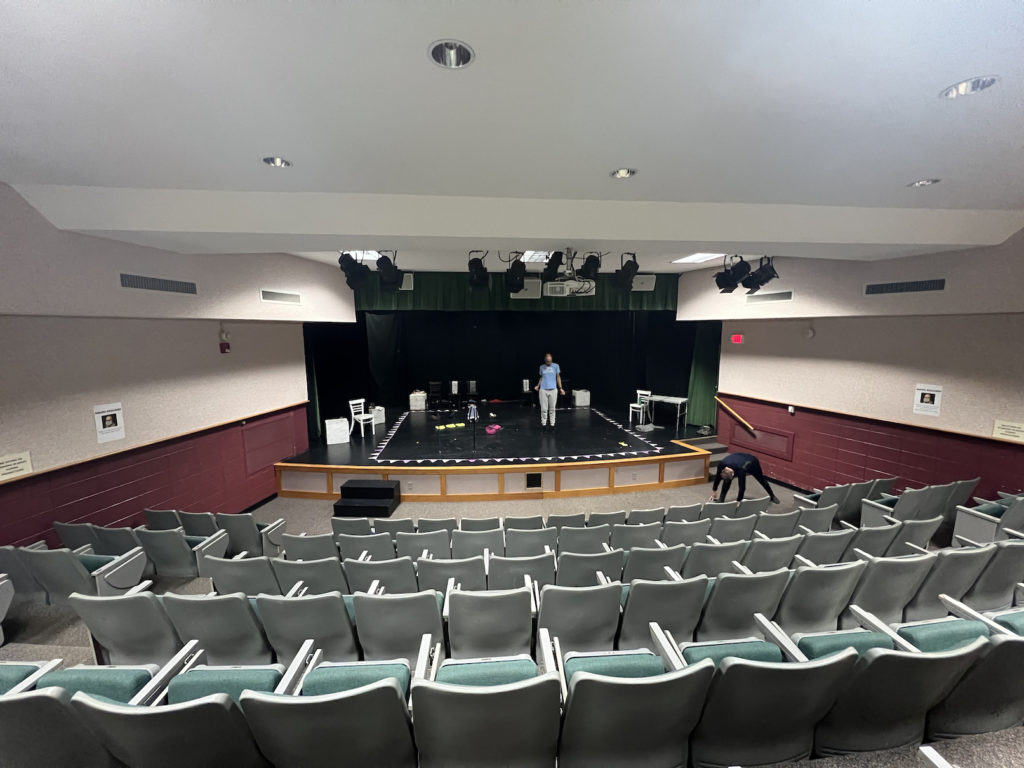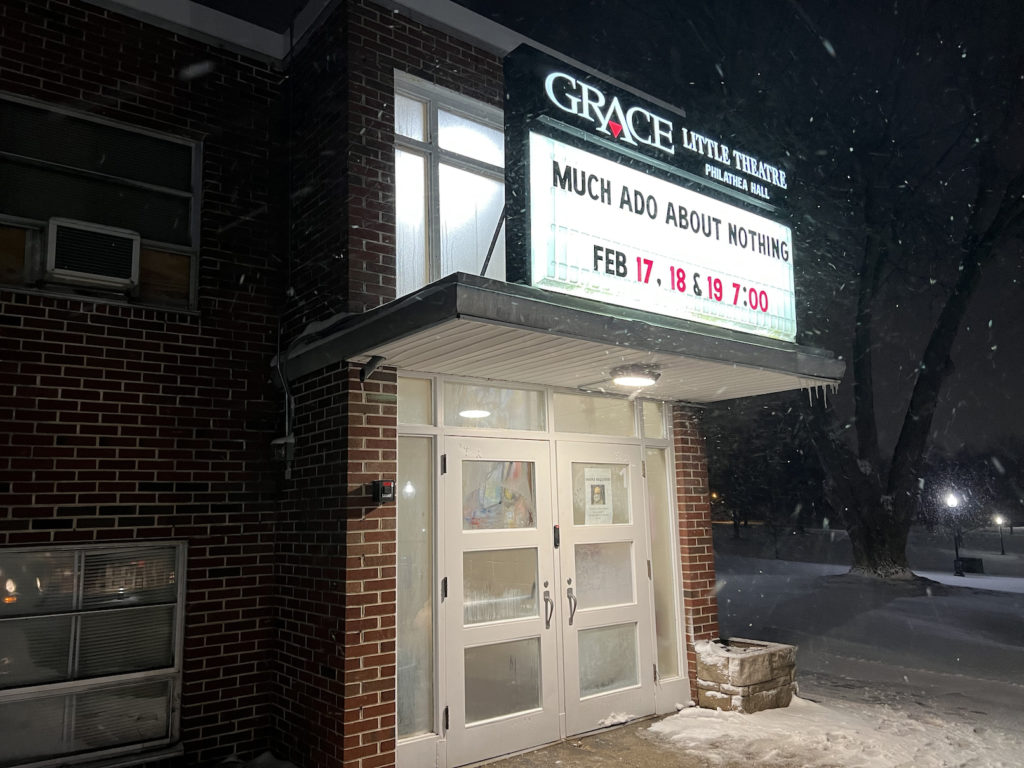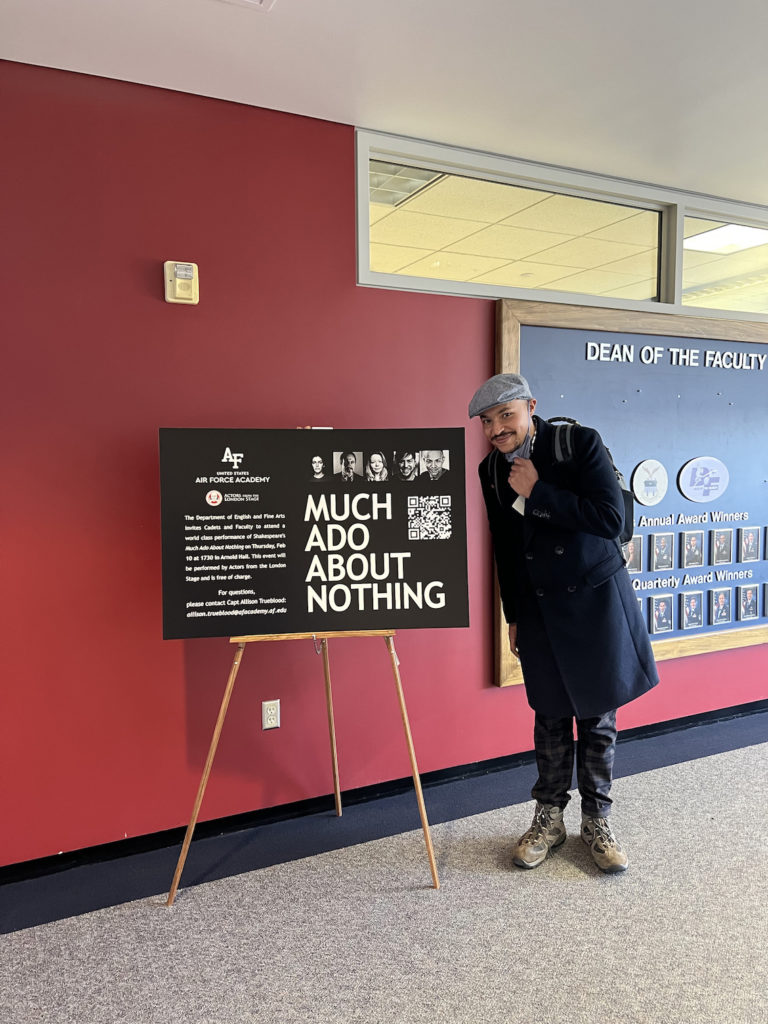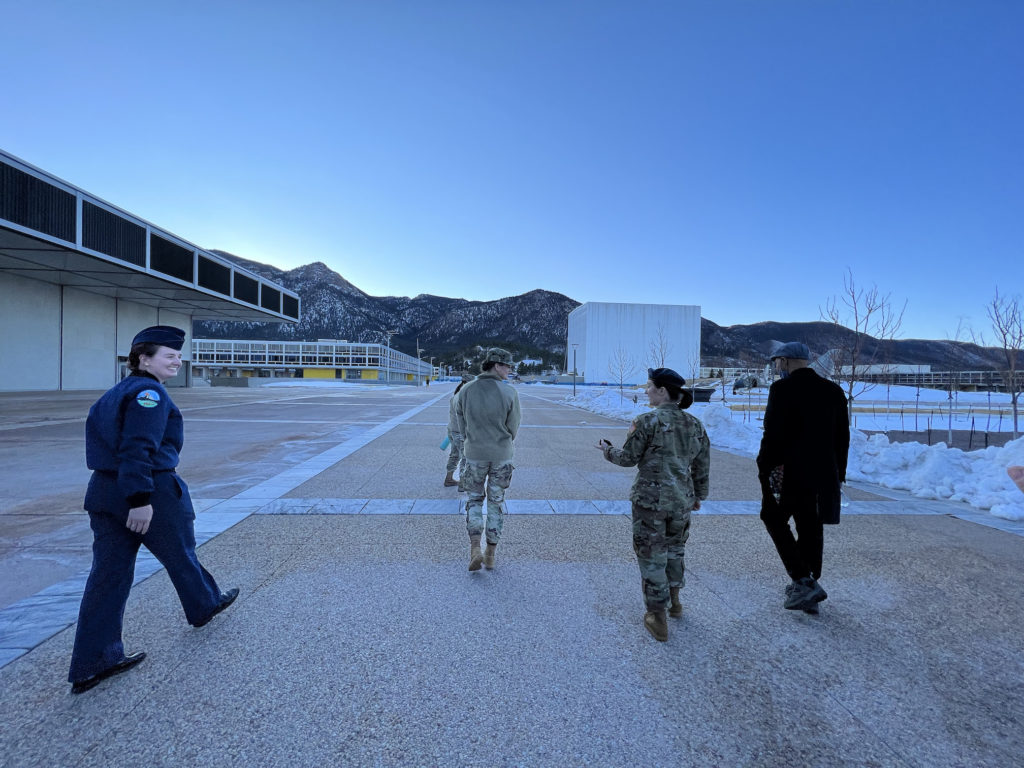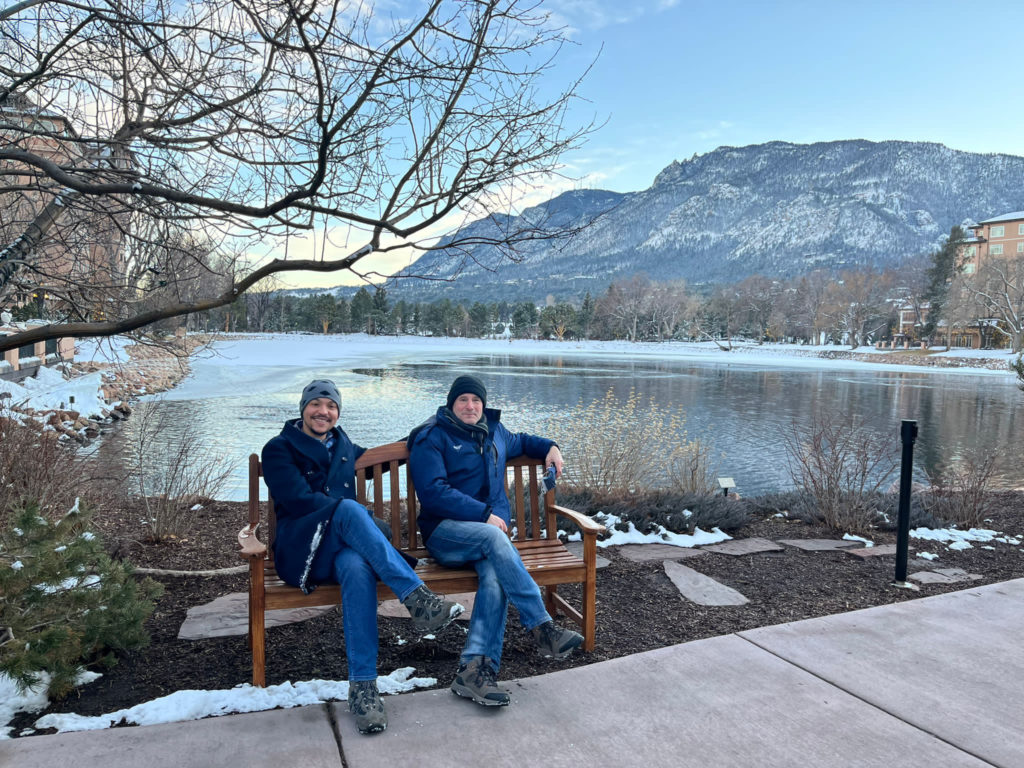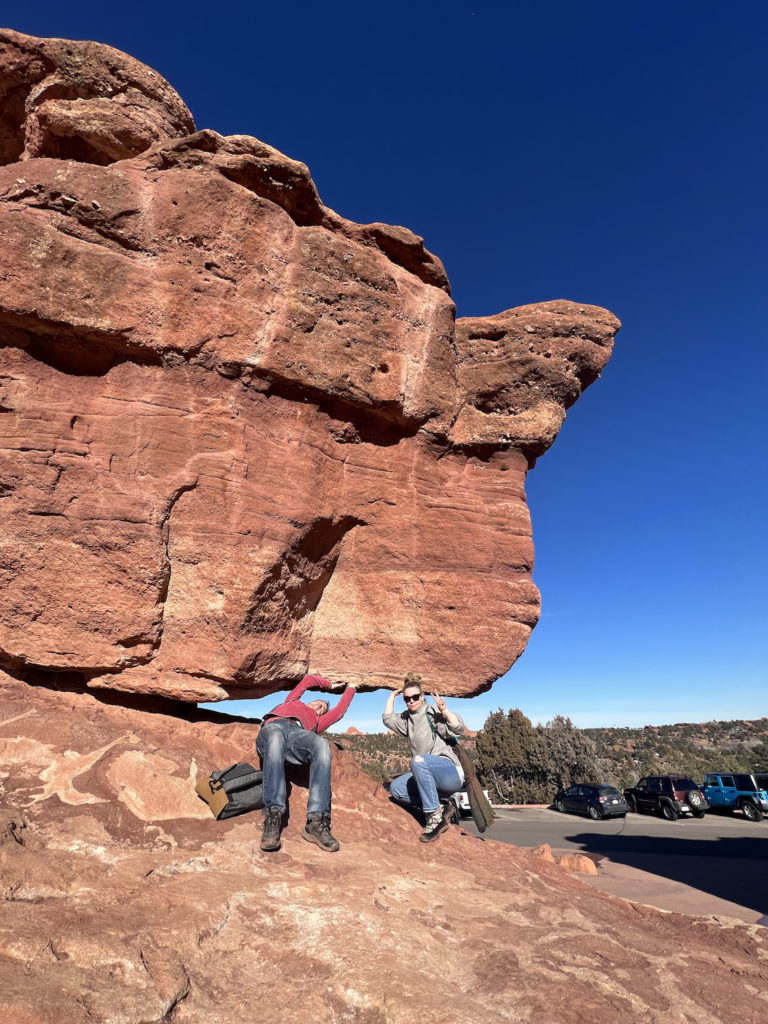By Michael Wagg
The only way I can make sense of this whirlwind of a week is to describe it backwards. We’ve arrived in Chicago, at a huge hotel in the thick of the city. Before checking in we stood on the DuSable Bridge, waving back to a wave of Mexican flags, accompanied by an orchestra of honking horns. It’s Mexican Independence Day and the joy is infectious. The horns show no sign of letting up as I head up to my room; the air sings with freedom. On a personal level, we’ve a free weekend ahead of us in this remarkable city, so perhaps we’re attuned to the mood. But the real sharpness of the taste comes from the day’s work just gone.
This morning we previewed our show at the Westville Correctional Facility, Indiana. Around 100 male prisoners gathered in the echoey auditorium to watch our performance of Macbeth. The focus of their listening and the warmth of their welcome was bolstering and humbling. Under shared light and in this shared space we began our bloody story. I’m sure none of the five of us on the concrete stage will ever forget the experience.
This play explores responsibility, fate, searing ambition, ruthless violence, loss and madness, and to play it in such a place, and with such a supportive audience was a profound privilege. This job, in all its various hats, has felt like a rare privilege from the off, but this first stab at it may remain the deepest. Lines rang true in ways that we always strive towards, but in this context were far harder edged. I’m sure we can’t really know the truth of it – but, for example, as our Macbeth cried ‘full of scorpions is my mind’ we noted one man nod in gentle agreement, as if Shakespeare’s words were describing something he felt all too acutely. And as we left the prison another man approached two of us and said quietly ‘thank you for the two hours freedom – the freedom here’ and gently tapped his head.
For most of this week we’ve been in a very different place, on the smartly manicured campus of the University of Notre Dame for our final rehearsal week, where chipmunks have cheered us on and the brilliant-red cardinal bird has showed us the way.
Steeped in the bloody business of Macbeth, for a good part of the week we’ve been trying to sort out the banquet scene. It’s a conundrum, and I’ve come to think of it as the AFTLS experience in a nutshell: There are six chairs. There are five actors. One of the actors never sits down. The other four actors are playing six characters, which means that while there are two empty chairs, in the world of the play those chairs aren’t empty at all, their occupiers kept alive by the deftest of turns. But in this case, one of the two is a vision, seen by the character standing but not by the five sitting. So one empty chair is not empty, while the other one is empty to some and not to others. I won’t blame you if you’re not following this – we too have often lost the thread – but add Banquo’s ghost to the mix and this is AFTLS… WRIT LARGE.
I might come back to the multi-rolling aspect of the work (otherwise known as ‘Annabelle Terry talks to herself’) in another blog, as in the coming weeks I hope to explore some of the particular aspects of this wonderfully peculiar and many-faceted job. One week I might look at the work we do with students; another week how our show is self-directed. I might explore the world of pretzel bites, or the opening hours of Taco Bell, or how to move a wood from one country to another… or beer… that’s very likely, Annabelle has already snapped me staring lovingly at a mash tun at the Crooked Ewe Brewery. So if you have suggestions for things you’d like covering, or you’d just like to stop me banging on about beer, then let me know (at the links below, or my twitter @michaelwagg). I will also introduce you to our cast and fantastic colleagues at Shakespeare at Notre Dame, but in the spirit of going backwards, I’ll leave that for later.
I hope there’ll be plenty of giggles along the way, and the truth is we’ve spent most of this first week with impossibly broad smiles on our faces, but as my head hits the pillow I think again of freedom and privilege. We are grateful to be taking this great play across America. The poetic worlds it opens up and the real world of travel across time zones is liberating. At the end of the play I, as Macduff announce ‘the time is free.’ It certainly feels like that as the honking horns continue to shout out over Lake Michigan. But our day’s work has shown us something else. Something stark and complex. That ‘two truths are told’ certainly – and many more.
